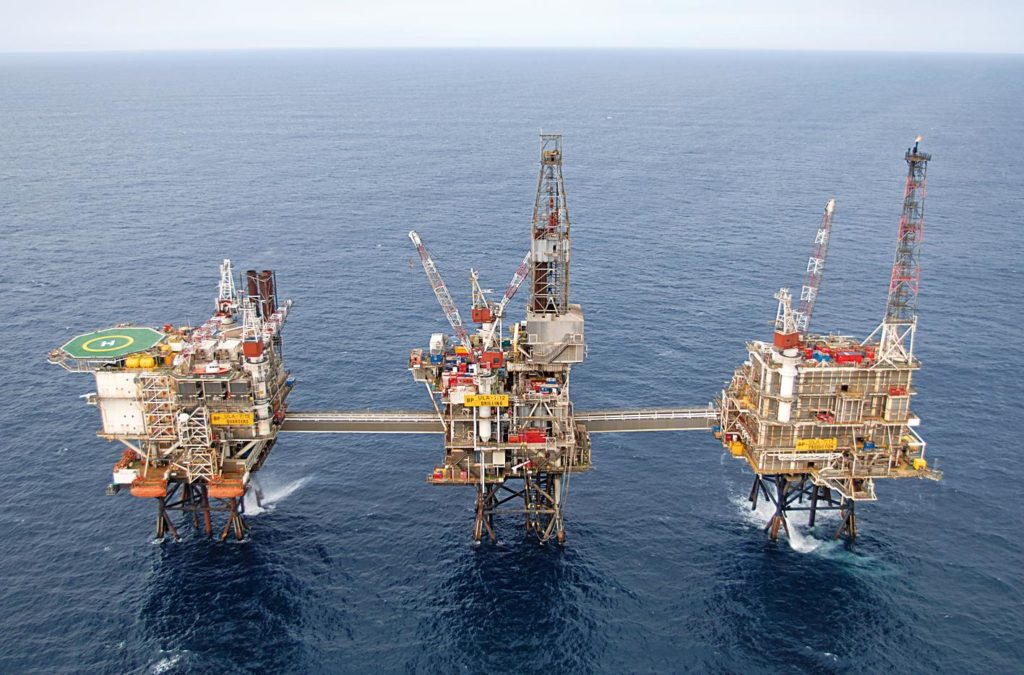
The global outlook of the oil and gas industry means Brexit doesn’t amount to a hill of beans for most buyers and sellers of North Sea assets.
Dealmakers in Aberdeen see the uncertainty caused by prolonged wrangling over the UK’s relationship with Europe causing some delays in the pipeline of transactions for smaller oil and gas services firms.
Meanwhile, there are also possible upsides for fledgling companies in sectors such as food and drink and technology as investors focus on opportunities on their doorstep.
Callum Gray, corporate finance director for Anderson Anderson & Brown, described the deal landscape in 2018 as a “year of two halves”.
It started out strongly with a wave of private equity-backed deals, while the “second wave” came with Lime Rock’s secondary sale of EnerMech to Carlyle Group for £450 million in October.
The EnerMech deal was a shot in the arm to buyers and sellers alike, signalling confidence and “good momentum” which has carried over into 2019.
As a result, Mr Gray expects deals will happen between now and the end of March – the conclusion of the first quarter dovetailing nicely with the proposed date Britain leaves the EU.
However, they are not completing in a rush to beat Brexit to the line – instead they are more likely to be driven by factors including incoming changes to entrepreneurs’ relief.
Nor are dealmakers in a rush as buyers look into whether their targets are sufficiently resilient in the case of a hard Brexit – for example, in terms of procurement from Europe or the employment of EU nationals.
And if they are, sellers are looking for a premium on price that reflects their diligence.
Mr Gray said: “These have all been on the go for a little while.
“The reason they are taking a little longer is possibly the impact of Brexit, but it is delaying rather than stopping.
“Firms want greater assurance around availability of income and people movement, and whether they are mitigating risk but, ultimately, transactions will complete.”
Oil price volatility at the end of 2018 also delayed some of the deals at the top of the operator chain, which means it is likely to be post-Brexit Q2 when upstream deals pick up again.
Jon Clark, oil and gas-focused partner, mergers and acquisitions, at EY, said: “There’s probably a brighter light at the end of the tunnel for oil and gas, compared to other sectors, particularly in upstream.
“Transactions are driven by companies that have the ability to deploy capital globally. They are looking for the best place to deploy capital.”
Mr Clark said China National Offshore Oil Corporation’s recent gas discovery on its Glengorm prospect – thought to be the biggest such find in a decade – was proof there are “still a lot of interesting things” for investors in the North Sea.
He added: “The oil price has generally improved, which is a big positive, and the North Sea has gone through quite a positive transformation in terms of its operating costs.
“It has gone from being lower in the list of places to quite high up the list for a number of companies.
“The ingredients for an active M&A market … are pretty strong.”
Pinsent Masons partner Martin Ewan said the law firm’s corporate transactions team was currently handling seven deals, which was “really positive”, with Brexit unlikely to figure – at least in terms of buying and selling.
Mr Ewan said a recent straw poll in a room of professionals put Britain’s departure from the EU “pretty low down” in their list of “bogeymen” for planning purposes.
He added: “In a weird way that correlates to my experience of speaking to oil services clients.
“They are already doing business in difficult places like Nigeria or Ghana, or in non-EU countries like the States or Middle East.
“They are less shocked by the idea of hassle going places and a lot of the interaction they have is not into the EU.
“It worries me that no one else seems to care, but that is probably a true reflection of what is going on in the boardrooms of oil services businesses in Aberdeen.”
But the supply chain faces issues if they employ EU nationals or rely on goods passing through UK ports, particularly if the shutter comes down quickly on March 29.
Mr Ewan expects there will be some sort of agreement in the coming weeks as, unlike energy, other sectors such as financial services will be more affected by “no-deal”.
He said: “I fear there will be a fudge and we will come out in a messy way that is hugely disadvantageous, where we give up all the preferential stuff.
“For financial services/banking side and the corporate side, our view is there will be a significant slowdown in activity – certainly in Q1 – until people know what the hell this looks like.
“Why would you spend money? But that question is less pronounced in oil and gas, which faces other issues that are more important.”
For all other sectors – particularly food and drink – a focus by investors in the domestic market could provide an unexpected boom.
Mr Gray said: “Start-up companies are getting better support which is improving the quality of business plans.
“The quality of the opportunities is better and we are seeing an increase in people committing capital to these, whether that be high net-worth individuals, angel investors or syndicates. That has been encouraging.
“That crosses over to food and drink, where you see a number of different products coming on the market now. The market route is a little shorter.”
Recommended for you
